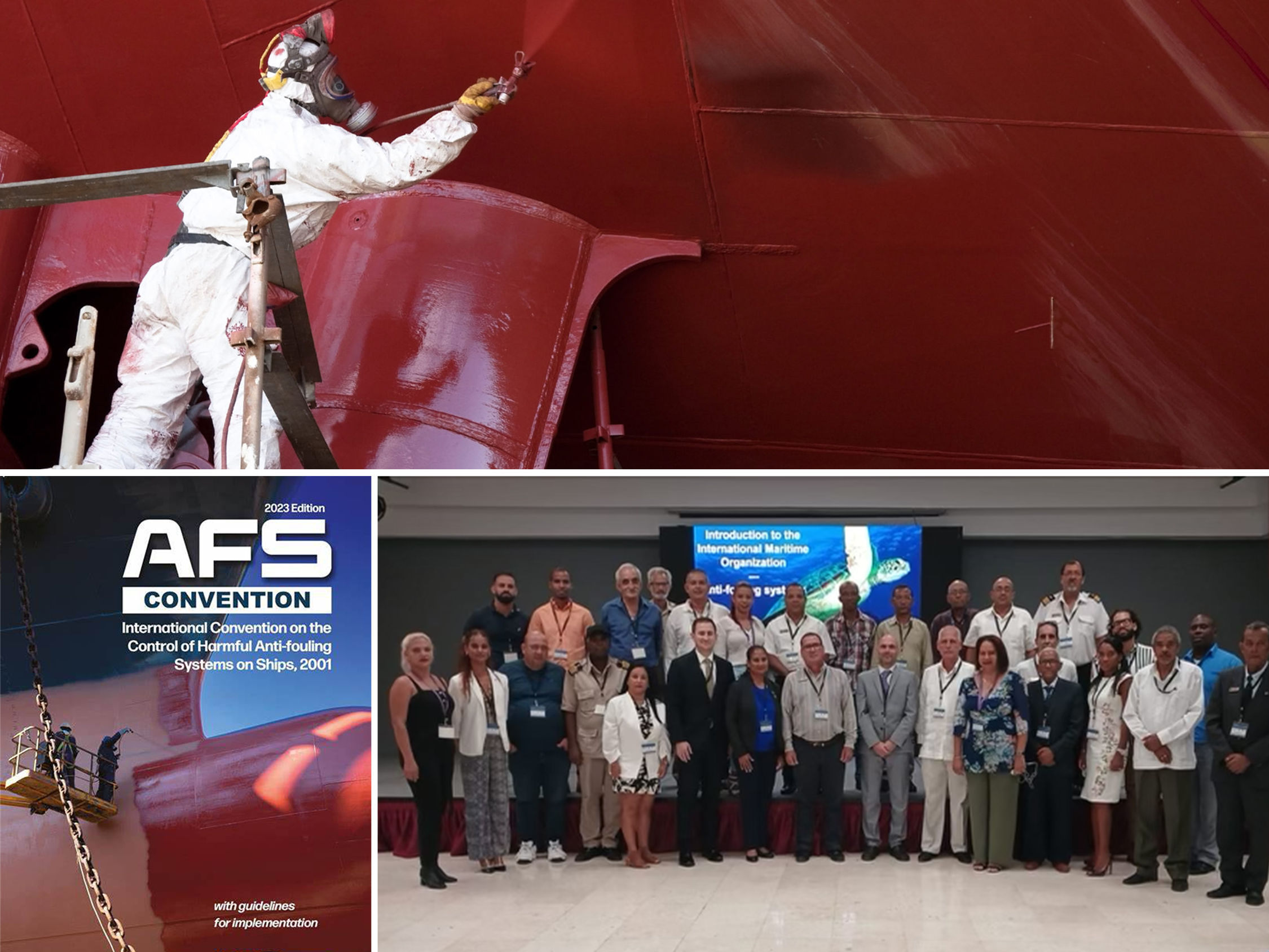A national in-person workshop to assist Cuba with ratifying and implementing the IMO Anti-Fouling Systems (AFS) Convention has taken place in Havana, Cuba (26-27 September).
The AFS Convention sets controls on certain harmful substances in anti-fouling systems, including organotin compounds such as tributyltin (TBT) and (from 2023) cybutryne, and provides a mechanism for the introduction of controls on further substances in the future.
Workshop participants, mostly government personnel and relevant stakeholders, were sensitized in the actions Cuba should take at a national level to ratify and subsequently fully implement and enforce the AFS Convention. The workshop covered technical and regulatory aspects of anti-fouling systems and assessed Cuba’s readiness for effectively implementing and enforcing the AFS Convention following ratification. The workshop programme included presentations and a site visit to a drydock, which offered participants the opportunity to see in practice and discuss relevant aspects affecting implementation and enforcement including survey, inspection and waste management.
Hosted by the Maritime Administration of Cuba, this national workshop, which had initially been scheduled in 2020 but was postponed due to the COVID-19 pandemic, follows on from a regional AFS workshop for the Caribbean region, which was held in Trinidad and Tobago in 2018. Cuba is working towards ratifying the AFS Convention.
Since the adoption of the AFS Convention in 2001, IMO has run national and regional workshops to encourage and assist countries in the ratification of the convention and its effective implementation and enforcement. The number of States signing up to the convention continues to rise and now stands at 96 countries, which represent 96.03% of world merchant shipping tonnage. This contributes to improving protection of the marine environment.
The workshop was implemented through IMO's Integrated Technical Cooperation Programme (ITCP), with support provided by the Regional Activity Centre / Regional Marine Pollution Emergency, Information and Training Centre - Wider Caribbean Region (RAC/REMPEITC-Caribe).
